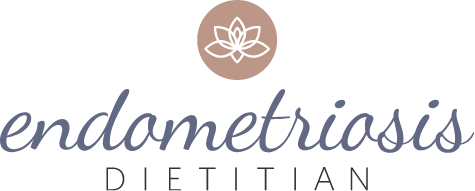Understanding Estrogen and Endometriosis: A Comprehensive Guide
When it comes to managing endometriosis, one of the most common recommendations involves hormonal birth control or suppressants. This often leads women to fear or feel confused by estrogen. So, what’s the real deal with estrogen and endometriosis? Let’s dive in.
The Role of Estrogen in the Body
Estrogen is a vital hormone with a wide range of functions, including:
Reproductive Health: Supports the endometrium, uterine contractions during childbirth, and fertile cervical mucus production.
Bone Health: Promotes growth and maintenance of strong bones.
Mood and Energy: Enhances neurotransmitter activity, boosting mood, energy, and libido.
Skin and Hair: Maintains collagen levels, skin elasticity, and moisture retention.
Metabolism and Heart Health: Improves insulin sensitivity and supports cardiovascular health.
Muscle and Cognitive Function: Preserves muscle mass and supports brain health.
However, estrogen needs to be balanced with progesterone to prevent issues like early pregnancy loss, depression, weight gain, or even hormone-sensitive cancers.
Symptoms of Estrogen Imbalance
High Estrogen (Estrogen Dominance):
Heavy, prolonged periods
Weight gain
Mood swings and headaches
Fluid retention
Increased inflammation and pain
Spotting
Tail-end brown bleeding
Clotty periods
Sleep issues
Low Estrogen:
Vaginal dryness and infections
Low libido
Depression and forgetfulness
Skin aging and poor sleep
Low energy
Hot flashes
Estrogen and Endometriosis: What’s Different?
Estrogen Receptors in Endometriosis Lesions
Endometriosis lesions have a unique estrogen receptor profile:
Higher ERβ Expression: Linked to progesterone resistance and increased inflammation.
Lower ERα Expression: Typically involved in reproductive processes, this imbalance contributes to the persistence of endometriosis symptoms.
Aromatase Activity
Endometriosis lesions express aromatase, an enzyme that converts androgens into estrogen, creating a self-perpetuating cycle of estrogen production.
The Estrogen-Histamine Cycle
High estrogen levels stimulate immune mast cells to release histamine, which further increases estrogen production. This vicious cycle contributes to inflammation and symptoms of histamine intolerance, such as itching, congestion, and fatigue.
Supporting Healthy Estrogen Levels
Here’s how you can promote balanced estrogen levels:
1. Gut Health and Estrogen Elimination
Constipation Management: Regular bowel movements are essential. Aim for 30g of fiber daily, paired with proper hydration.
Probiotics: Consider strains targeting gut motility (e.g., BioGaia Protectis) or low-histamine strains if needed.
2. Liver Support
Include dark, leafy greens, bitter teas, deeply pigmented fruits, and omega-3s in your diet.
Consider liver-support supplements, sauna use, and reducing alcohol consumption.
3. Dietary Interventions
Cruciferous Vegetables: Support estrogen detoxification. These include broccoli, cauliflower, brussel sprouts, cabbage, kale and radishes.
Phytoestrogens: Found in flaxseeds, soy, and pistachios, these help reduce estrogen receptor binding by your stronger endogenous estrogen (the estrogen made inside your body).
Aromatase Inhibitors: Foods like citrus fruits, cocoa, and white button mushrooms can help reduce estrogen conversion from testosterone.
4. Lifestyle Adjustments
Regular movement and good posture support healthy hormone signaling.
For sensitive individuals, trialing dairy elimination may help reduce hormonal exposure.
Final Thoughts
Balancing estrogen is crucial for managing endometriosis and improving overall health. By addressing gut health, supporting the liver, and incorporating hormone-friendly foods and practices, you can take control of your symptoms and improve your quality of life.
If you found this guide helpful, but would like to let someone else take the reins in helping you achieve symptom resolution, consider applying to work with me inside the Endo Thrive Society. Book a discovery call here, or join today by clicking this link.
Not quite ready to jump into high level support, consider trying the Endo Flare Care Estro Support formula. This formula is strategically designed to help support estrogen elimination at the level of the liver and the gut. Get it here.

